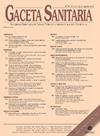Association of glucagon-like peptide-1 receptor agonists with acute pancreatitis and biliary disease in individuals with diabetes and obesity: a propensity-weighted, population-based cohort study
IF 1.5
4区 医学
Q3 HEALTH CARE SCIENCES & SERVICES
引用次数: 0
Abstract
Objective
To evaluate the risk of acute pancreatitis and biliary disease in patients treated with glucagon-like peptide-1 receptor agonists (GLP-1 RA).
Method
Population-based, propensity-weighted, new user, active comparator design study including patients with diabetes and obesity initiating treatment with GLP-1 RA or the comparator group sodium-glucose cotransporter 2 inhibitors (SGLT-2i) in the region of Valencia from 2015 to 2021.
Results
In adjusted, per protocol main analysis, no risk differences were found for acute pancreatitis (HR: 0.56; 95%CI: 0.17-1.91) nor for biliary disease (HR: 1.12; IC95%: 0.79, 1.58). Secondary analyses yielded similar results.
Conclusions
Despite we did not observe increased risk of gastrointestinal events in GLP-1 RA vs SGLT-2i patients, adherence to approved indications and close monitoring of potential adverse events are warranted to ensure patient safety.
胰高血糖素样肽-1受体激动剂与糖尿病和肥胖患者急性胰腺炎和胆道疾病的关联:一项倾向加权、基于人群的队列研究
目的:评价胰高血糖素样肽-1受体激动剂(GLP-1 RA)治疗患者发生急性胰腺炎和胆道疾病的风险。方法:以人群为基础,倾向加权,新用户,积极比较设计研究,包括2015年至2021年在瓦伦西亚地区开始接受GLP-1 RA或比较组钠-葡萄糖共转运蛋白2抑制剂(SGLT-2i)治疗的糖尿病和肥胖患者。结果:经调整后,在每个方案主要分析中,急性胰腺炎无风险差异(HR: 0.56;95%CI: 0.17-1.91)和胆道疾病(HR: 1.12;(95%: 0.79, 1.58)。二次分析得出了类似的结果。结论:尽管我们没有观察到GLP-1 RA与SGLT-2i患者胃肠道事件的风险增加,但有必要遵守批准的适应症并密切监测潜在的不良事件,以确保患者安全。
本文章由计算机程序翻译,如有差异,请以英文原文为准。
求助全文
约1分钟内获得全文
求助全文
来源期刊

Gaceta Sanitaria
医学-公共卫生、环境卫生与职业卫生
CiteScore
4.10
自引率
5.30%
发文量
80
审稿时长
29 days
期刊介绍:
Gaceta Sanitaria (Health Gazette) is an international journal that accepts articles in Spanish and in English. It is the official scientific journal of the Sociedad Española de Salud Publica y Administración Sanitaria (Spanish Society of Public Health and Health Administration) (SESPAS).
The Journal publishes 6 issues per year on different areas of Public Health and Health Administration, including:
-Applied epidemiology-
Health prevention and promotion-
Environmental health-
International health-
Management and assessment of policies and services-
Health technology assessments-
Health economics.
The editorial process is regulated by a peer review system. It publishes original works, reviews, opinion articles, field and methodology notes, protocols, letters to the editor, editorials, and debates.
 求助内容:
求助内容: 应助结果提醒方式:
应助结果提醒方式:


